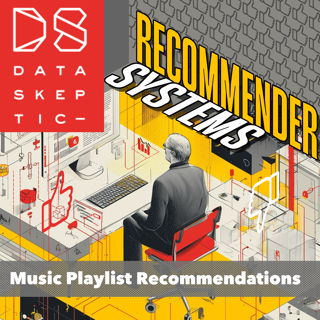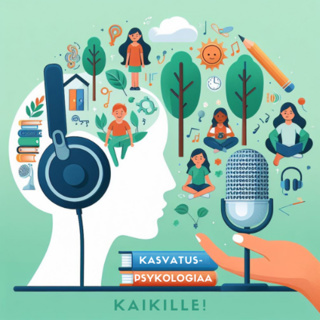
The Small World Hypothesis
Kyle discusses the history and proof for the small world hypothesis.
21 Huhti 17min

Thinking in Networks
Kyle asks Asaf questions about the new network science course he is now teaching. The conversation delves into topics such as contact tracing, tools for analyzing networks, example use cases, and the importance of thinking in networks.
12 Huhti 33min

Fraud Networks
In this episode we talk with Bavo DC Campo, a data scientist and statistician, who shares his expertise on the intersection of actuarial science, fraud detection, and social network analytics. Together we will learn how to use graphs to fight against insurance fraud by uncovering hidden connections between fraudulent claims and bad actors. Key insights include how social network analytics can detect fraud rings by mapping relationships between policyholders, claims, and service providers, and how the BiRank algorithm, inspired by Google's PageRank, helps rank suspicious claims based on network structure. Bavo will also present his iFraud simulator that can be used to model fraudulent networks for detection training purposes. Do you have a question about fraud detection? Bavo says he will gladly help. Feel free to contact him. ------------------------------- Want to listen ad-free? Try our Graphs Course? Join Data Skeptic+ for $5 / month of $50 / year https://plus.dataskeptic.com
1 Huhti 42min
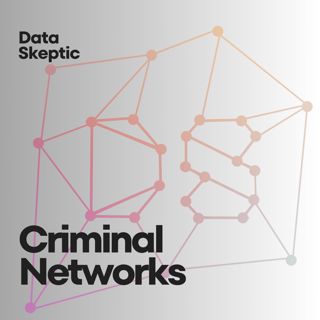
Criminal Networks
In this episode we talk with Justin Wang Ngai Yeung, a PhD candidate at the Network Science Institute at Northeastern University in London, who explores how network science helps uncover criminal networks. Justin is also a member of the organizing committee of the satellite conference dealing with criminal networks at the network science conference in The Netherlands in June 2025. Listeners will learn how graph-based models assist law enforcement in analyzing missing data, identifying key figures in criminal organizations, and improving intervention strategies. Key insights include the challenges of incomplete and inaccurate data in criminal network analysis, how law enforcement agencies use network dismantling techniques to disrupt organized crime, and the role of machine learning in predicting hidden connections within illicit networks. ------------------------------- Want to listen ad-free? Try our Graphs Course? Join Data Skeptic+ for $5 / month of $50 / year https://plus.dataskeptic.com
17 Maalis 43min
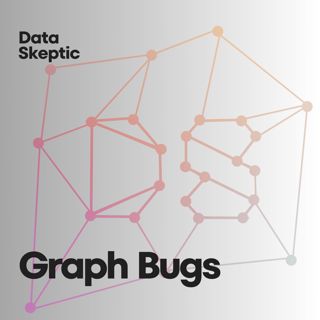
Graph Bugs
In this episode today's guest is Celine Wüst, a master's student at ETH Zurich specializing in secure and reliable systems, shares her work on automated software testing for graph databases. Celine shows how fuzzing—the process of automatically generating complex queries—helps uncover hidden bugs in graph database management systems like Neo4j, FalconDB, and Apache AGE. Key insights include how state-aware query generation can detect critical issues like buffer overflows and crashes, the challenges of debugging complex database behaviors, and the importance of security-focused software testing. We'll also find out which Graph DB company offers swag for finding bugs in its software and get Celine's advice about which graph DB to use. ------------------------------- Want to listen ad-free? Try our Graphs Course? Join Data Skeptic+ for $5 / month of $50 / year https://plus.dataskeptic.com
10 Maalis 29min

Organizational Network Analysis
In this episode, Gabriel Petrescu, an organizational network analyst, discusses how network science can provide deep insights into organizational structures using OrgXO, a tool that maps companies as networks rather than rigid hierarchies. Listeners will learn how analyzing workplace collaboration networks can reveal hidden influencers, organizational bottlenecks, and engagement levels, offering a data-driven approach to improving effectiveness and resilience. Key insights include how companies can identify overburdened employees, address silos between departments, and detect vulnerabilities where too few individuals hold critical knowledge. Real-life applications range from mergers and acquisitions, where network analysis helps assess company dynamics before an acquisition, to restructuring efforts that improve workflow and team collaboration. Gabriel's work highlights how organizations can shift from traditional hierarchical thinking to a network-based perspective, leading to smarter decision-making and more adaptable companies.
3 Maalis 44min
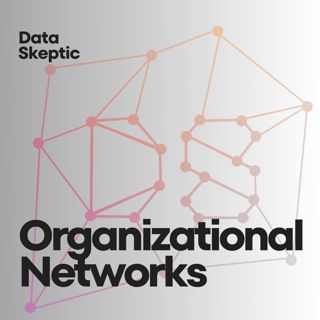
Organizational Networks
Is it better to have your work team fully connected or sparsely connected? In this episode we'll try to answer this question and more with our guest Hiroki Sayama, a SUNY Distinguished Professor and director of the Center for Complex Systems at Binghamton University. Hiroki delves into the applications of network science in organizational structures and innovation dynamics by showing his recent work of extracting network structures from organizational charts to enable insights into decision-making and performance, He'll also cover how network connectivity impacts team creativity and innovation. Key insights include how the structure of organizational networks—such as the depth of hierarchy or proximity to leadership—can influence corporate performance and how sparse network connectivity fosters more diverse and innovative ideas than fully connected networks.
25 Helmi 27min

Networks of the Mind
A man goes into a bar… This is the beginning of a riddle that our guest, Yoed Kennet, an assistant professor at the Technion's Faculty of Data and Decision Sciences, uses to measure creativity in subjects. In our talk, Yoed speaks about how to combine cognitive science and network science to explore the complexities and decode the mysteries of the human mind. The listeners will learn how network science provides tools to map and analyze human memory, revealing how problem-solving and creativity emerge from changes in semantic memory structures. Key insights include the role of memory restructuring during moments of insight, the connection between semantic networks and creative thinking, and how understanding these processes can improve problem-solving and analogical reasoning. Real-life applications span enhancing creativity in the workplace, building tools to combat cognitive rigidity in aging, and improving learning strategies by fostering richer, more flexible mental networks. ------------------------------- Want to listen ad-free? Try our Graphs Course? Join Data Skeptic+ for $5 / month of $50 / year https://plus.dataskeptic.com
18 Helmi 43min
